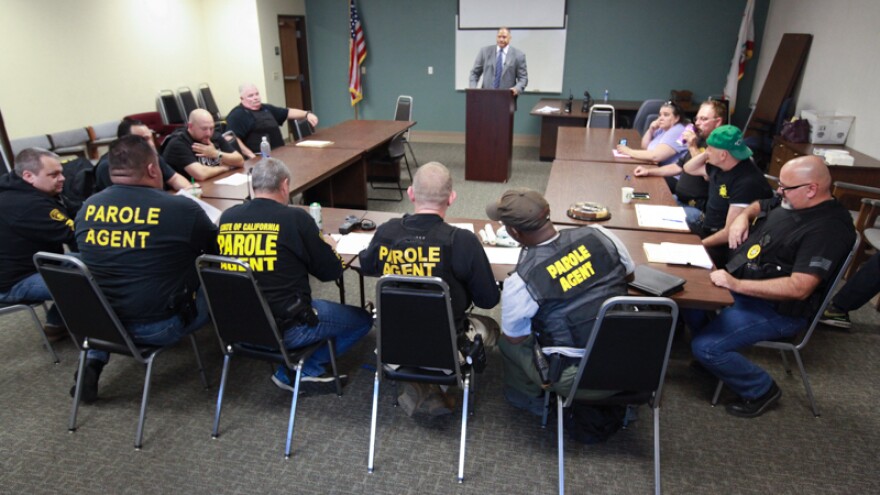From San Quentin Radio:
When people are sentenced to prison time in California, they’ll either serve a finite period, like, seven years, or an indefinite period. If they can demonstrate ‘good behavior’ in prison, incarcerated people can be eligible for a parole hearing to decide whether they might be released, with certain conditions. But, being approved for parole doesn’t mean someone gets to go straight home — there’s a catch.Imagine spending 10, 20, or 40 years in incarceration. You've done your best to stay out of trouble, you toe the line. You do the work by taking classes on rehabilitation and you've changed your violent behavior. You go before the parole board, and they agree you've changed, and they grant you parole. You're finally going home! Hallelujah, right?! Not so fast! The governor has 150 days to decide if he'll take your parole date or let you go. This causes a great deal of stress for the men waiting on his decision.
The Waiting Game
On December 17, 2017, after 40 years in prison, Billy “Faheim” Fuller was found suitable for parole. But that doesn't mean he's going home.
“It won't crush me after all this time,” Faheim said, after being granted parole, “I mean it's something that I would be able to deal with very easily I wouldn't want to but it wouldn't be a problem for me because it would be reality and at this point in my life it is what it is.”
Now, it's been almost 120 days since Faheim has received a parole date, and his emotions are getting the best of him.
“I been feeling miserable for someone who is possibly going home soon after being in here forty years,” Faheim shares. “you should be doing is feeling elated but that's not the case. I'm very sleep deprived, my appetite is bad. It's just the stress of this governor's review period.”
Faheim could ask his counselor at San Quentin to find out whether the governor has made a decision, but he prefers not to do that.
“I don't know it's just scary it's just scary to walk in there and find out,” Faheim says. “It's just easier for me to just wait even though it's stressful and it's causing me a lot of anxiety, it would cause me even more thinking about walking in that counseling office to find out whether or not he took action. It would be better for me to just wait and pray, and hopefully I'll get to walk out of here.”
When the answer is no
The governor has rejected parole for a number of men at San Quentin, including Allen Robert Fredricks, who has been incarcerated since 1983. Allen knew this was a possibility. “I was told previously to this that there was a 50/50 chance he may have taken it, and the reason why was because at the time the governor had stated that anyone in prison for murdering a woman, a child, or on a second offense for murder he didn't want out,” says Allen. “I was very depressed, I had done everything they had asked me to do. He took my date because he felt that he didn't believe my version of the crime, and yes the process was unfair.”
Light at the end of the tunnel
The day that Faheim learned that the governor would approve his parole, he showed up at my cell with tears in his eyes. In his hands, he held the paper that said he would be released in about 10 days.
“Now that it's final, I mean, all the stress is gone now I'm a little afraid,” Faheim admits. “I'm a little scared because reality is that I'm really going. It's been a long time. It's been four decades, so I can't help but be a little nervous.”
For Faheim, the waiting paid off, and he is finally going home.
Uncuffed, formerly San Quentin Radio, is a project in which KALW editors train incarcerated people to report stories from inside prison. A CDCR official listened to and approved the audio for this story prior to broadcast.






